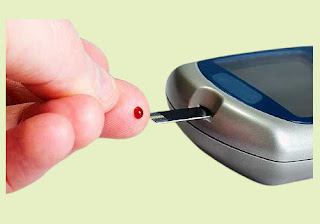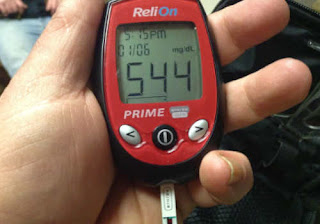15 Early Signs and Symptoms of High Blood Sugar Levels in Adults

Many of you must be curious about what are the signs and symptoms of high blood sugar levels in adults? Not to worry, we have the answer for your curiosity. According to the latest studies, millions of people have diabetes worldwide. Whatever we eat on our routine breaks into glucose, and more glucose forces insulin to release more in the bloodstream.
When glucose level takes a spike in the body and affects the body for a long time, severe organ and nerve damage can occur in your body.
Before diagnosing diabetes, our body generates various symptoms that indicate increased blood sugar, and the condition is also known as hyperglycemia.
Signs and Symptoms of High Blood Sugar Levels

People consume more processed and unhealthy food with a poor lifestyle, inviting more diseases. In this article, we are elaborating on 15 early signs of elevated blood sugar and tricky ways to control it naturally:-
1. Frequent Urination
When blood sugar level increases, the kidneys have to flush it out in the form of urine, and you pee more than normal. Sometimes you may have UTI or urinary tract infection during high blood sugar.
So if you drink water before going to bed and notice frequent urination, don’t simply ignore it.
2. Lack of Focusing
When the body is unable to decrease the glucose level in the body, it affects the whole body’s functioning, and you feel difficulty concentrating even in normal chores in regular life.
High blood sugar level affects the brain, and you feel brain fog.
3. Blurred Vision
When there is more sugar in the bloodstream, it affects the eyes. The studies have revealed that excess sugar or glucose stuck in the eye’s lenses cause’s blurred vision.
Don’t just rush for eyeglasses or lenses; moreover, you must notice the spike in blood sugar level. The long-term effect can damage the vision, so don’t ignore the sign.
4. Dehydration
If the blood sugar level gets on a high stage, you feel dehydrated as your skin gets more dry and pale and looks rough. Even if you are drinking enough water, frequent urination makes your mouth dry and urges you to drink more water.
5. Fatigue
Fatigue or feeling excess tiredness is a common issue, and you may feel it due to various causes, and high blood sugar level is one of them. Your body is not relaxed and fighting with something that doesn’t sound great.
Even eating a heavy meal loaded with carbs can make you feel tired or sleepy. If you feel fatigued or have extreme tiredness, then consult an expert.
6. Impotence
Hyperglycemia or high blood sugar influences sexual activities, and you don’t feel much interest or such satisfaction during intercourse. Hyperglycemia affects erectile dysfunction and nerves that cause impotence.
7. Itchiness
When blood circulation gets affected due to high blood sugar levels, it causes itchy and dry skin, especially in the lower parts of the body. The long-term effect may appear brown or red patches on the skin, and doctor advice becomes necessary.
8. Disturbed Stomach
If you notice constant diarrhea and other stomach issues like bloating, nausea, pain, and inflammation in the stomach, and vomiting, it may be the symptom of high blood sugar level.
9. Hunger Attack
Having hunger pangs is also a sign of diabetes and high blood sugar. If you can’t control your hunger and rush for something to eat immediately and feel excessive hunger, you must check your blood sugar level.
10. Slow Healing Cuts
If you notice that even the tiny cuts and bruises take enough time than normal while healing, it may be a prior sign of a misbalanced blood sugar level. It affects the nerves and blood circulation, so the repairmen process gets disturbed, and the wound heals slowly and sometimes becomes a serious issue.
11. Headache
You may feel lightheadedness if the blood sugar level has spiked up as it affects the nerves in the brain, and poor circulation is the other reason.
12. Palpitations
If you already have diabetes and are still taking more glycemic food, it can lead you through palpitations.
13. Poor gum Health
When too much glucose produces in the body, it develops more bacteria in the mouth that can spoil your gums and teeth. You may have tenderness, bleeding gums, swelling, and teeth sensitivity, and these all are blood sugar signs and symptoms.
14. Numbness and Tingling
If you notice numbness or tingling in the legs, arms, or hands, it can be due to hyperglycemia. Increased sugar level damages the nerves, also known as neuropathy.
15. Rapid Infections
The CDC has announced that constant high blood sugar can weaken the immune system, and you get more prone to infections and always feel sick and tired.
The studies also revealed that women with diabetes face more yeast infections than others with symptoms of high blood sugar in women.
Read also: How to Reverse Gluten Intolerance
How to Control High Blood Sugar Level at Home

1. Cut Down Carbs
You must cut out the rich in carbohydrates, for instance, pasta, potato, rice, bread, etc.
Switch to more veggies and fruit and take more protein than carbs.
2. Exercise
People with hyperglycemia should never stay still, and they must add light exercise to their routine. Even regular walking would also help.
3. Drink more Liquid
Drink enough water and consume such beverages without sweeteners. Many types of herbal teas can help you out.
4. Take Enough Sleep
The studies show that lack of sleep raises the chances of hyperglycemia. Take proper rest and if you have any trouble, listening to music and exercise can solve the problem. Avoid sleeping pills.
5. Supplements can Help
Many supplements made of natural ingredients can down blood sugar levels. It would help if you didn’t skip your regular supplement.
6. Reduce Stress
Excess stress is never good, so try to calm yourself and do breathing exercises to relax and reduce stress.
Be sure to Read: How to Make Bitter Gourd Juice for Diabetes
In Closing
If you still feel not well, then you must consult a doctor. There are fewer blood investigations available to check the blood sugar level.
Changing the routine habits and eating habits will defiantly help. Add some workout and meditation can also help. We hope this information will be helpful for you. If you have any suggestions or queries regarding this article on signs and symptoms of high blood sugar levels, please ask and stay connected with us for more details.
References
- “Hyperglycemia and hypoglycemia in type 2 diabetes” – NCBI
- “Know the signs and symptoms of diabetes” – NCBI
- “Hyperglycemia” – PubMed
- “Hyperglycaemia (Hypers) | High Blood Sugar – Diabetes UK
- “The Effects of Sugar on Health”– Actuaries.org.uk





